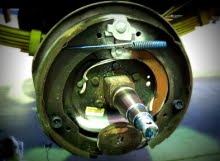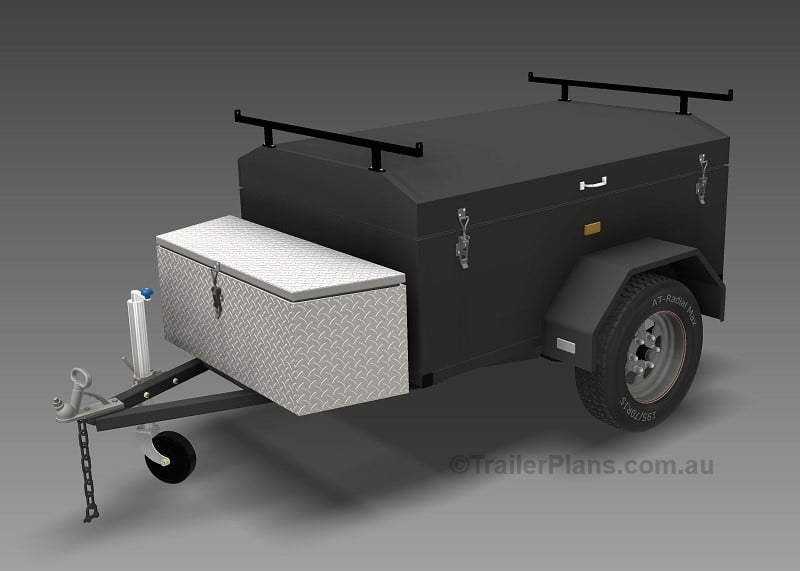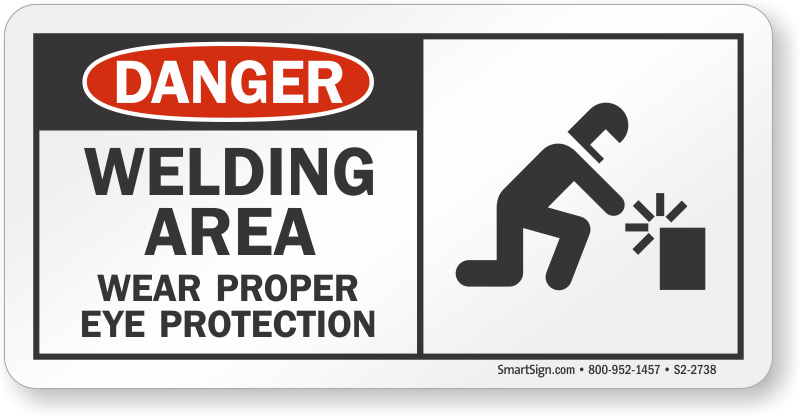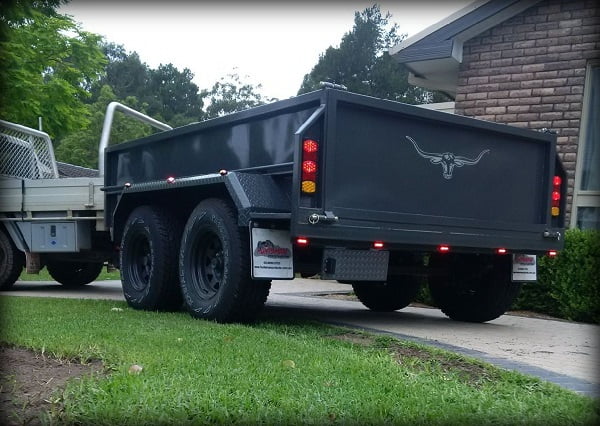
TRAILER BRAKES
- Trailers OVER 750kg GTM must be fitted with efficient brakes.
- Trailers UP TO 2 tonnes GTM must have brakes on at least one axle.
- Trailers OVER 2 tonnes GTM must have brakes operating on ALL wheels.
- Over-run brakes may be used on trailers UP TO 2 tonnes GTM.
- Trailers over 2 tonnes GTM must have a “brake-away” (emergency brake) system fitted.
- Must be operable from the driver’s seat except for over-run brakes.
- Hydraulic brake hoses must comply with ADR 42 – ‘Hydraulic Brake Hoses’.
- Hydraulic brake tubing or hoses must conform to approved standards.
- Tubing or hoses must be fitted to the trailer so as to prevent chafing, kinking or other mechanical damage.

SAFETY CHECK LIST
Trailers need to be checked on a regular basis to ensure that they are in a safe and serviceable condition for use.
- Check trailer lights and reflectors
- Inspect and/or clean electrical connector
- Inspect safety chains
- Check trailer brakes (if fitted)
- Inspect hitch/coupling bolts or welds
- Lubricate hitch/coupling receiver (or as per manufacturer’s instructions)
- Test breakaway switch (if fitted)
- Check tire pressures, inspect for wear
- Check wheel nuts for tightness & correct torque
- Check trailer wheel bearings…
Read more from QLD Safe Towing

SAFETY FIRST
- Building a trailer involves working with metal, drilling, welding, grinding, painting, heavy lifting and other potentially harmful activities.
- Make sure that you are familiar with safe working practices of your equipment before attempting this project.
- Use suitable protective gear such as leather gloves, welding helmet, safety goggles, hearing protection and protective clothing.
- Find a suitable location to build your trailer – such as a shed or garage.
- Arrange that you have enough space for the construction activities.
- Remove flammable materials and ensure that other people – especially kids – are well aware to stay clear of the project area.
- If in doubt about any safety issues, seek advice before you start.
- Where possible, enlist the help of a friend to help you lift and manoeuvre heavy parts & assemblies.

SAFE TOWING
- Know your vehicle’s towing capacity
- Know your trailer’s actual on-road weight
- Is your trailer is correctly loaded?
- Does the trailer comply with relevant regulations?
- Does the trailer’s towing stability need improvement?
- Check your trailer before/after each journey
- Is your trailer adequately insured?
Contact us or seek further advise on your trailer’s particular situation or needs.
